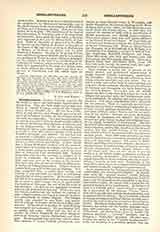

Gesta Iaei per Francos, the title adopted by Guibert de Nogent (d. about 1124) for his history of the First Crusade, In the eleventh century the name of “Frank” was applied in a general manner to all the inhabitants of Western Europe, being a survival of the political unity established by the Carolingians for the benefit of the Franks. The Byzantine chroniclers never otherwise refer to the Westerns. Herve, a Norman adventurer in the service of the Byzantine emperors in the eleventh century, is called “Francopoulos” (Son of the Franks). It was therefore quite natural that this name of “Frank” should be used by the Orientals in referring to the crusaders, and it is evident that they called themselves by the same name. “Gesta Francorum” is the title of one of the chief accounts of the Crusades. Since the Crusades the word Frank remains in the east a synonym for Western, and today the term is still used in that sense. Moreover, the idea that the Franks were a people chosen by God arose soon after their conversion to Christianity, and finds expression many times in the traditions relative to Clovis, which Gregory of Tours transmits to us. We read in one of the prologues of the Salic Law: “Glory to Christ, who loves the Franks! May He preserve their kingdom! May He replenish their leaders with His grace, for this is the strong and brave nation which has richly covered with gold the bodies of the holy martyrs.” With Charlemagne the Franks protected the Roman Church from the Lombard invasion, destroyed paganism among the Saxons, drove back the Mussulmans, and established their protectorate over the Holy Sepulchre. Hence the crusade was, for the men of the eleventh century, merely the crowning of that alliance between God and the Franks, and after the discourse of Urban II at Clermont, it was to the cry of “God wills it!” that all made haste to take the cross.
Guibert, b. in Picardy about 1053, was a monk at Saint-Germer-de-Fly, elected Abbot of Nogent-sous-Coucy in 1104, had been a witness of the enthusiasm aroused by the preaching of the crusade, perhaps he had even assisted at the Council of Clermont. Desiring to write an account of the Crusades, he chose this title of the “Doings of God through the Franks“, and in his account, wherein the marvelous occasionally mingles with reality, he affirms at different times the Divine mission of the Franks. This work, dedicated to Gaudri, Bishop of Loon, is not an original account of the crusade, and in part follows the anonymous author of the “Gesta Francorum”. It is nevertheless not without great value, for it shows the profound impression created throughout Europe by the conquest of the Holy Land. Although Guibert was a contemporary of the events which he relates, they receive already in his account an epic coloring. The interest of these seven books, composed between 1108-1112 consists in their revealing to us the doctrine of the providential role, which the men of the Middle Ages assigned to the Westerns, but in Guibert’s mind the only Franks worth considering were his compatriots, the French. To them the popes turned when they suffered injuries inflicted by other nations, and he contrasts their conduct with that of the Teutons, in revolt against the Church. He therefore considers the crusade as a wholly French undertaking (Bk. II, i). When, at the beginning of the seventeenth century, Jacques Bongars (1546-1612) undertook to publish the works of all the known historians of the Crusades, he chose as the title of his collection “Gesta D’ei per Francos” (Hanover, 2 v., 1612).
LOUIS BREHIER

